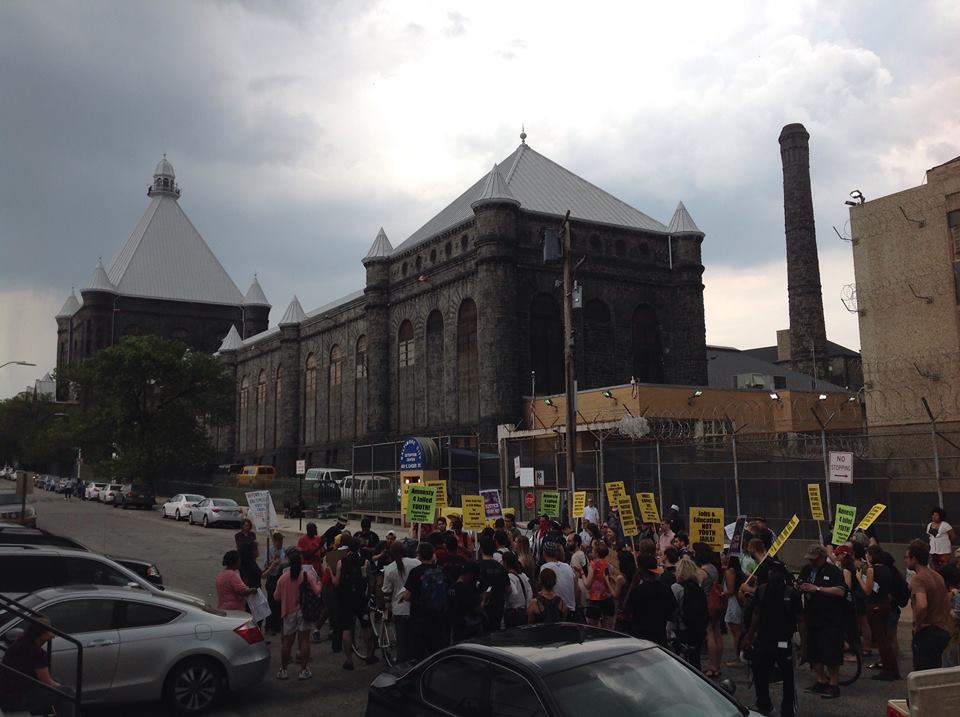It’s 130 a.m.
One of those nights I wish I could plug in my brain and download my thoughts because every ounce of creative energy has been wrung out of me and yet there are things that still must be said. So I’m writing.
Our first day storytelling in Baltimore began at 10 this morning and we just wrapped up at 1 a.m.
“The new link for the Storify works now,” I told Chelsea. She’d already fallen asleep but her eyes fluttered open and she muttered ,”OK” before drifting off again.
It’s been a long day.
Navigating a new city, driving the wrong way down a one-way, being escorted out of a building, walking more than 3 miles with a group of protesters, meeting activisits of all ages, interveiwing, recording, plus taking in the soul, the essence of Sandtown-Winchester.
“What are you feeling right now?” I asked us. We were sitting in our rental car outside the Sharon Baptist Church on North Stricker Street. We had just arrived for our first event. We’d been in Sandtown less than 30 minutes. And we felt it.
The spirit of Sandtown-Winchester.
It was a heaviness, but not darkness.
There had been a shift in the atmosphere, it felt.
Like a prairie scene. An alertness, a stillness, followed by a thunderous stampede.
Like the moments before a thunderstorm. A stillness, calm, then winds and torrential downpour.
It felt calm. For now. But something is coming.
We heard people’s stories. There was a range. A brother who had been shot in the back of the head by police. A family harassed by police for weeks, months and calling 911 on their own officers. A grandmother beaten. A young man stabbed and his throat slit. A woman said an officer saved her from a life of drugs and “tricking” by getting her into rehab.
The general message: not all cops are bad. But the bad ones need to be held accountable.
The people who love Sandtown-Winchester, love Sandtown-Winchester. This is their home. There are indifferent residents too. The ones who watch other people clean up trash. The ones who watch kids paint the doors of abandoned buildings.
But there are people cleaning up trash and there are kids painting the doors of abandoned buildings on Saturday afternoons. Young kids. 10, 11, 13 years old. This was their idea. They want to bring fresh produce and food to the corner stores. Junk food causes so many diseases, an 11 year old tells me.
When they’re done painting, they’ll go play basketball, the young boys say. I’ve seen street signs that warn, “No ball playing in the street.” I wonder if this is the type of thing young black males are arrested for. Earlier I heard a woman say her son was arrested for spitting in the street because it was against some city ordinance.
It’s impossible for me to know what it’s like to be a black person living in Sandtown-Winchester. I will never know.
But I can hear, so I will.
This is the reverence of storytelling.
{I am currently in Baltimore, Maryland with two VoiceBox Media correspondents. We are writing and telling stories of social activists working for change in their communities. Click here to follow our coverage. You can also follow us on Twitter (@VoiceBoxMedia_) and Facebook.}

Comments